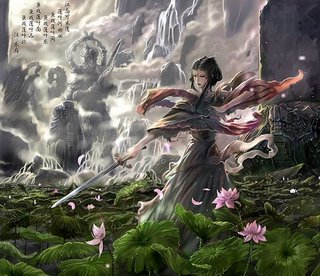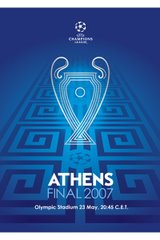漫画, Manga

Manga is the Japanese word for comics and print cartoons. Outside of Japan, it usually refers specifically to Japanese comics. As of 2006, manga represents a $5 billion global market.
Manga developed from a mixture of ukiyo-e and foreign styles of drawing, and took its current form shortly after World War II.
It comes mainly in black and white, except for the covers and sometimes the first few pages, and in some Animanga all the pages are colored. Popular manga are often adapted into anime (Japanese for animation) once a market interest has been established. (Manga is sometimes mistakenly called "anime" even when not animated.)
Adapted stories are often modified to appeal to a more mainstream market. Although not as common, original anime is sometimes adapted into manga (such as Neon Genesis Evangelion and Cowboy Bebop).
History of manga
Literally translated, manga means "random (or whimsical) pictures". The word first came into common usage in the late 18th century—with the publication of such works as Suzuki Kankei's "Mankaku zuihitsu" (1771) and Santo Kyoden's picturebook "Shiji no yukikai" (1798)—and in the early 19th century with such works as Aikawa Minwa's "Manga hyakujo" (1814) and the celebrated Hokusai manga containing assorted drawings from the sketchbook of the famous ukiyo-e artist Hokusai.
However, gi-ga (literally "funny pictures", esp. tyō-jyū-jinbutu-gi-ga (鳥獣人物戯画), literally "funny pictures of animals and humans") drawn in the 12th century by various artists contain many manga-like qualities such as emphasis on story and simple, artistic lines.
Manga developed from a mixture of ukiyo-e and foreign art movements. When the United States began trading with Japan, Japan tried to modernize itself and catch up with the rest of the world.
Thus, they imported foreign artists to teach their students things such as line, form and color, which were never concentrated on in ukiyo-e as the idea behind the picture was normally considered more important.
Manga in this period was known as Ponchi-e (Punch-picture) and, like its British counterpart Punch magazine, mainly depicted humor and political satire in a short, 1- or 4-picture format.








Δεν υπάρχουν σχόλια:
Δημοσίευση σχολίου